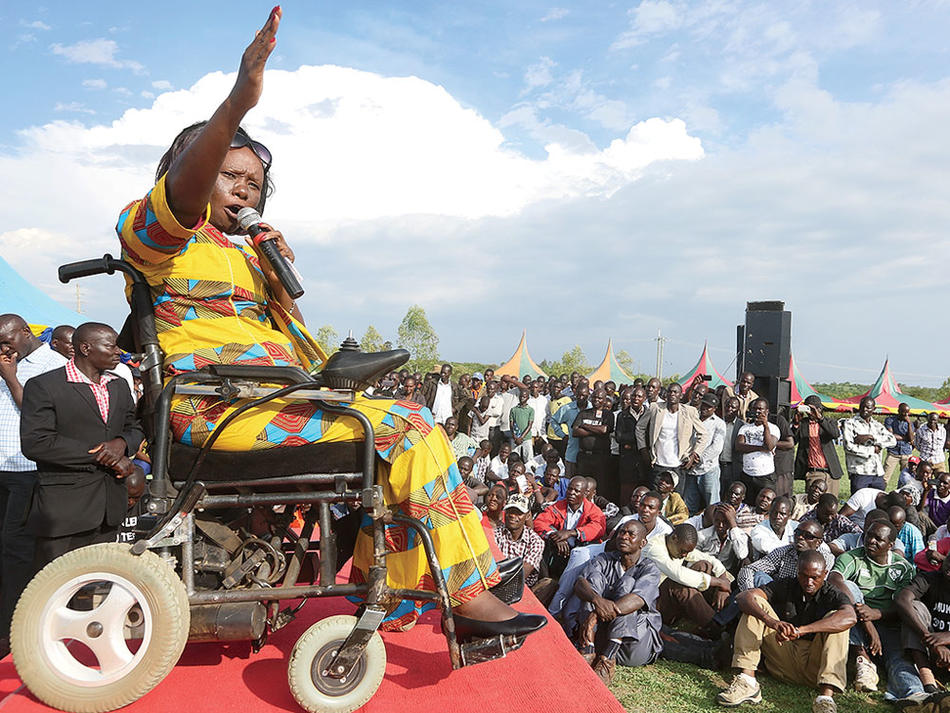Dennitah Ghati ’04SW smiles as she steers her wheelchair along the sidewalk, across Broadway, and up a ramp that leads to the entrance of the Columbia Alumni Center. When she hits the button that makes the two front doors swing open, she breaks out into a wide grin.
“New Yorkers may take these little things for granted,” she says. “But where I come from, this is exactly the kind of access we’re striving for.”
Ghati comes from Nairobi, where she is serving her second term as a member of parliament. One of Kenya’s few lawmakers with a disability, she advocates for greater accessibility in buildings and on sidewalks, inclusivity in schools and workplaces, and increased cultural acceptance for the disabled.
“In Kenya, having a disability is stigmatized. People see it as a curse on the family,” she says. “It’s deeply ingrained, but I believe we can change that.”
Ghati always knew that she wanted to go into public service. Born able-bodied in Kenya’s rural Migori County, near Lake Victoria, she spent most of her early career working for equal rights for women and girls. She studied social work at Columbia, and after graduating in 2004 she returned to Kenya and founded an NGO that helps victims of domestic and gender-based violence.
In 2013, Ghati became the first woman ever elected to parliament from Migori County. But just a year later, she was riding in a car heading back to Nairobi from her home district when a tire burst. The car flipped over, and Ghati damaged her spinal cord. For the last five years, she has used a wheelchair.
“Of course, people have empathy, but I think until you or a family member are disabled, it’s impossible to really understand the needs of that community,” she says.
When Kenya ratified a new constitution in 2010, the country adopted UN standards that establish equal rights for people with disabilities, and Ghati spends much of her time ensuring that the country is compliant. She travels widely to learn how other countries address the needs of the disabled. In addition, she recently spearheaded a campaign to make sure that people with disabilities were included in Kenya’s latest census, which was taken in August 2019.
“Traditionally, families would hide disabled people during the census, because they are ashamed,” she says. “But if we don’t know how many people need resources and where they are, it’s impossible to meet those needs.”
Ghati is particularly committed to advocating on behalf of women and girls with disabilities, a group that she views as Kenya’s most vulnerable population. In Kenya, women with disabilities are far more likely to be victims of violent crime and of brutal practices like female genital mutilation, Ghati says.
“I’m continuing the work that I did before the accident, but for a segment of the population that needs me the most,” she says. “The accident might have taken away my ability to walk, but it didn’t take away my drive to move forward.”



